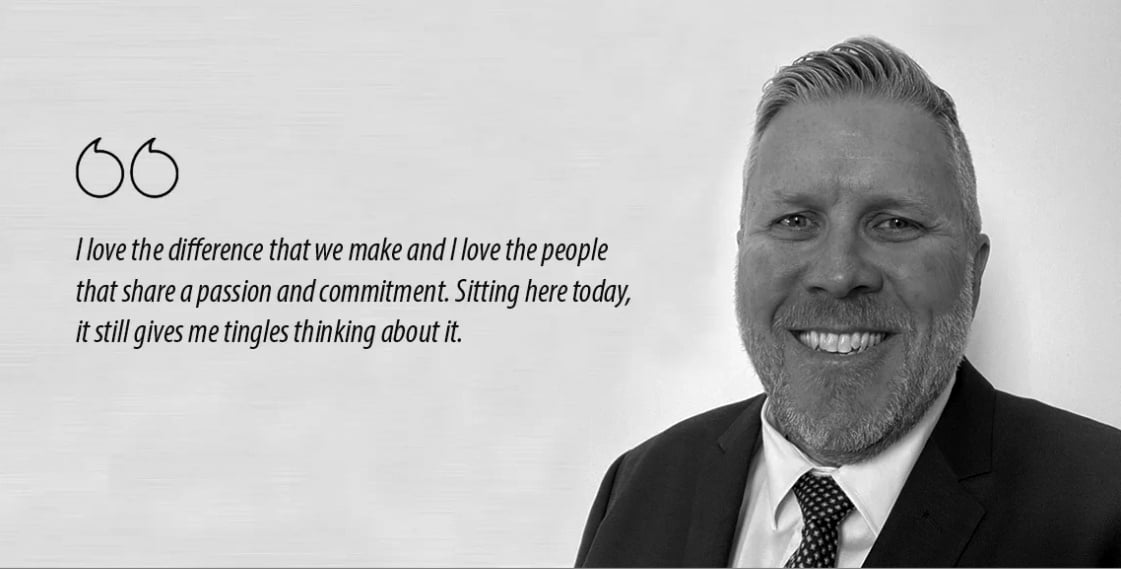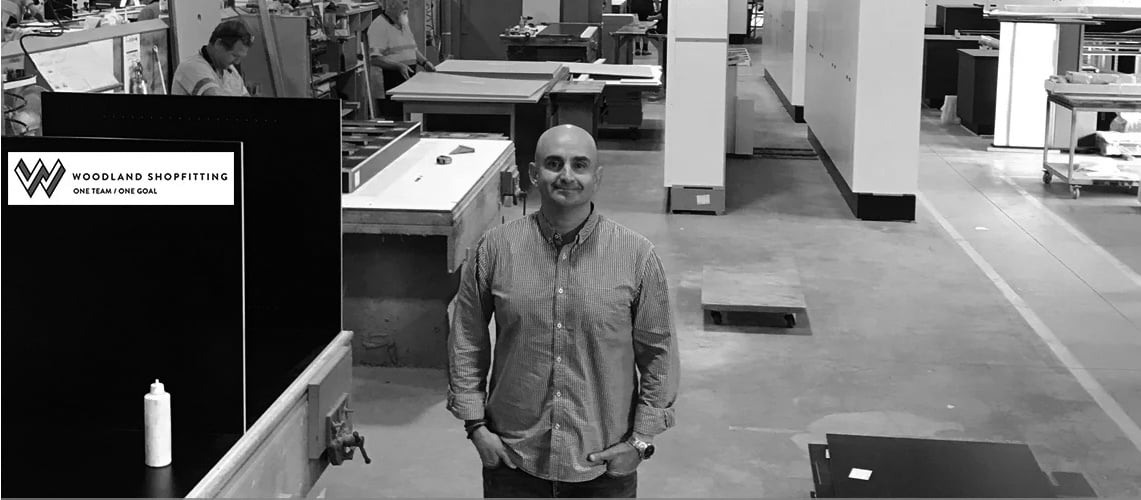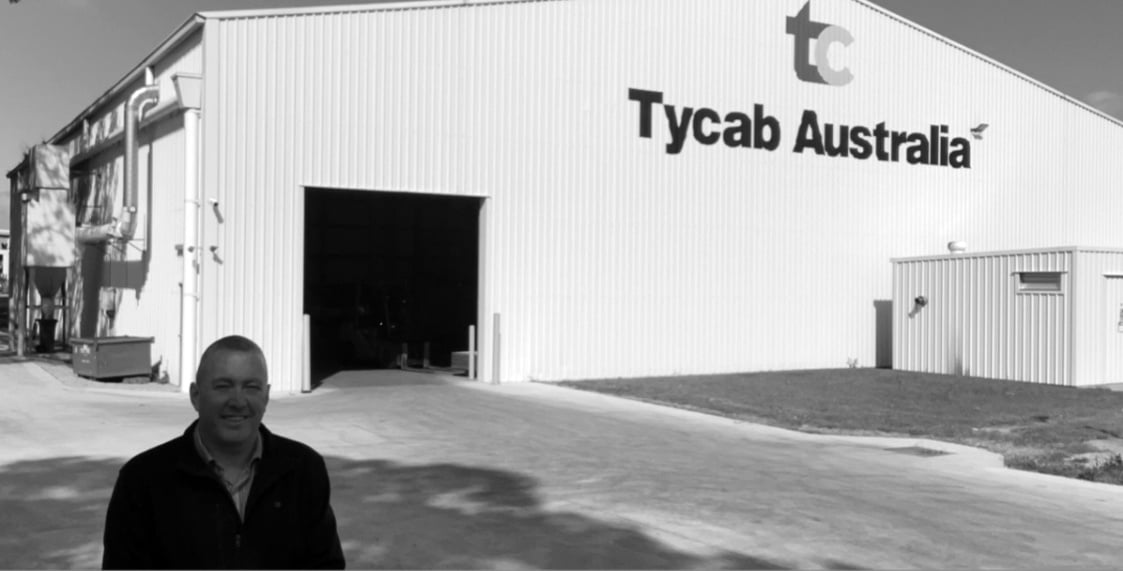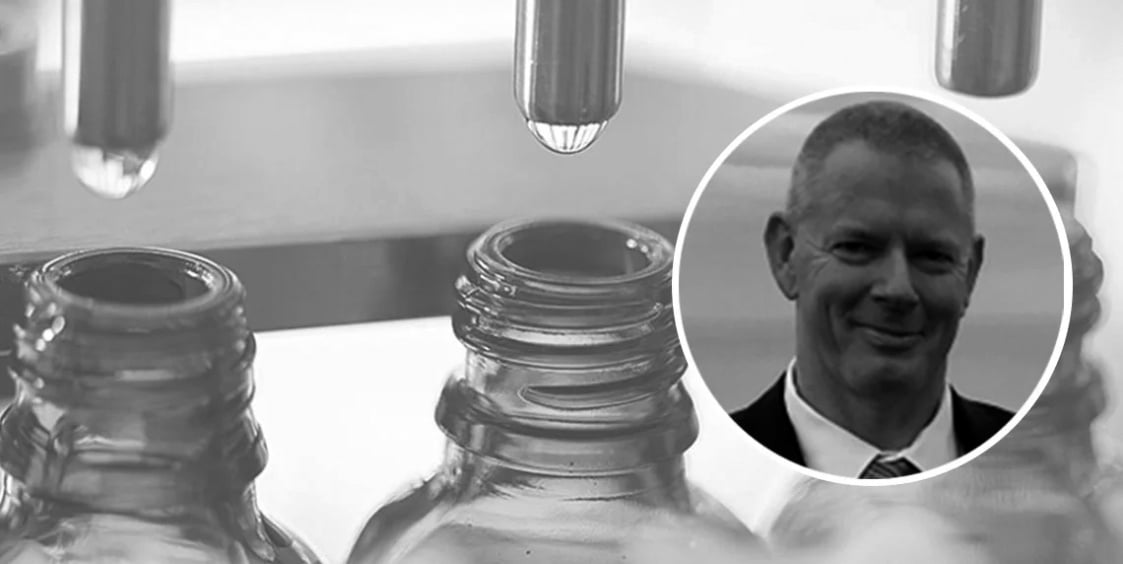3 min read
A Fitting Way to Build a Business
In 1992, Michael Casablanca joined Woodland Shopfitting in Brisbane as a first year tradesman. He learned the business from bottom to top,...

Luke Macdougall, CEO of Fire Safe Australia and New Zealand, started his career in the marine industry as a Shipwright by trade. After completing his apprenticeship, he ventured out into business on his own for several years, focusing on marine maintenance.
At the end of 1999, Luke decided to close the business down before GST kicked in. “A lot of companies back then were not sure what was happening with GST and pretty much wanted to get paid annual leave, so I decided to go back and become an employee.”
Luke experienced a variety of different roles while working in the marine industry. He worked for a family business, which was a soap and detergent manufacturing company based in Taren Point in Sydney. Here he started off doing deliveries right through to production then moved into management. While Luke established a good understanding of the operational side of the business, he realised the industry wasn’t a suitable match.
Luke moved into a variety of other roles gaining experience as a full-time lifeguard, becoming a qualified private investigator, and working in clubs. There were a whole range of different career options available, however Luke decided to return to the marine industry; this time as a General Manager of a large marina in Pittwater. A little while into that opportunity the owner of the business had a change of heart and wanted to return to run the business.
“I was made redundant and decided to make one final cut from that marine industry because it is very lifestyle orientated and it was time to get out and start to get serious.”
After reviewing his skills and experience, Luke wanted to move into project management in the building industry. Here he targeted a small section of the building industry which happened to be fire protection.
“I fell into it through an advertisement. The owner of the business also had a passion for boating. He had a boat, and we both raced yachts, so we had a lot of common interests. I also had a motorbike common interest with the General Manager. There were a lot of crossover skills that I transferred into the business and they took me in as a Service Manager for them and taught me the fire industry. They were quite a large Sydney-based fire protection business and I was with them for several years. Then over time, I moved on to other fire companies, learning and gaining more skills.”
Moving to a role working for a multinational fire protection company, Luke was able to gain a broad knowledge of the fire industry. He recalls attending many Fire Protection Association meetings. “You'd be sitting in these large rooms with a couple of hundred people and people would be sticking their hands up and stating, we've got to make a difference, we've got to change, we got to do this better, we got to do that better.”
Being relatively young in the industry, Luke describes being frustrated wishing the attendees would be quiet and stop wasting time so they could move on and get things done. “It wasn't until years later that I noticed myself being one of those people standing up and yelling, we need to make a change, we've got to do this differently, we need to do this better. And all of a sudden I realised, I'm now one of those people. And I thought, what's the difference? I didn't even notice the change. All of a sudden, I realised I had a passion for the industry and that was a big turning point for me. I think a lot of people go through life and don't really know what they want to do. But I knew I did.”
After seven years in the industry, realising his passion and enjoying his role, Luke states “I love the difference that we make and I love the people that share a passion and commitment. Sitting here today, it still gives me tingles thinking about it. And so that's really when I decided this is the industry I want to stay in”.
From there, Luke completed further fire courses wanting to obtain as much knowledge as he could. He then worked through different management roles, into a Service Manager role, into a General Manager's role with Fire Safe and then progressed to the CEO role.
“I love being able to get that pride and passion when I drive past a building, and think… I know that building is safe because I've worked in it, my staff have worked in it. Or people, if you go into that venue, don't take that exit, only take this exit because that's the safest one to get out of. It's a little bit of a thrill knowing that we're making the buildings as safe as we possibly can.”
“Recently I was on annual leave in New Caledonia walking and saw one of the street fire hydrants there. While they look almost similar to ones in NSW, I couldn't help taking a photo of the hydrant and posting it to our social group. When you have that passion, you never stop working”.
When Luke describes his passions, he explains that he enjoys sharing his knowledge and wisdom with people and helping them become more aware. “Any knowledge that I can pass on by helping people advance their skill level or just their knowledge base I do - having that increased baseline data is a potent tool to have. It's not our knowledge or our intellectual property out there that we retain. A lot of the Australian standards are very complicated and they're not black and white. There's a very heavy shade of grey in between. So trying to break down the interpretation of rules when you see them come across to a client or a customer or a member of the public, there's a light bulb moment that sort of kicks in, and you think… there you go, you get it now. I get that thrill if I can teach somebody or show somebody what something means, as it shows that I have a clear understanding. If I can explain it to you and you can explain it to somebody else, I’ve done my job.”
Twelve months ago, Fire Safe purchased a fire truck to complete 5 yearly hydrant booster flow testing. Having always been a requirement, Fire Safe has led the way in their industry as many fire companies don't have access to a fire truck. They either rent a truck or engage somebody else to do this which can be expensive. “We purchased a fire truck ourselves and have actively started to market that and to be able to go out ourselves to perform the flow testing to make sure that the hydrant systems do work when the fire brigade connects to them. And we offer that service to other fire companies as well, hopefully at a rate where they can justify it to their client. So as far as Fire Safe goes, that's been a high-ticket sort of item or service that we've added.”
Fire Safe has also purchased two other fire companies over the last five years. “We're constantly looking at growing through acquisitions. We're looking at a third company at the moment, which is great. We operate all around Australia and throughout New Zealand. It keeps us very busy.”
Like most businesses, COVID-19 had its impact. Fire Safe chose to relocate their office from Sydney down to Unanderra near Wollongong to give the company a bigger chance to progress through that period; however hiring staff, like many companies became a challenge. “We continue to face challenges with the employment of staff. We have regular recruitment ads running on Seek, LinkedIn and other platforms. Finding staff that are willing to engage and have a passion for what they do is probably the biggest issue at the moment. It's not industry related. It's not just something that we're having problems with - I think it's a current global problem.”
In brighter news, the business celebrated its 20th birthday in November 2022. The current owner of Fire Safe remains one of the original owners, and is still working within the business on a reduced scale of two days a week. “I think for any business to survive 20 years, they're doing something right. We can show steady growth organically every year when not having a sales team. It's all through word of mouth. So that has been a big achievement for us as a business.”
In terms of success, Luke shares that being passionate and transparent are key. “We are, in a way, brutally honest with people. We don't sugarcoat anything. We don't intentionally or unintentionally mislead people. If we make mistakes, we have no problems owning up to them. I think showing people that you're approachable, that you're knowledgeable and that you've got that passion for what you're doing, goes a long way.”
Luke who stands tall at six foot ten, confesses that when he starts talking to people a passion and energy builds up inside him and is quite often mistaken for anger. “I have to consciously tone things down because I wear my heart on my sleeve. You'll see that passion in the way that I work; in my persona, my image… people say, I can tell you know this stuff - you know, where you want to go, what you want to do, what you want to be. And they can see I know exactly where I stand. That's been a really eye-opening thing the last year. We've had quite a few ex-staff come back and apply for jobs with us, and we've reemployed most of them. And that was a feather in our cap. Sometimes when they leave, they leave thinking that they are going into greener pastures. And then when they do leave, they come back and acknowledge that we know our stuff and we’re actually really good to work for.”
Discussing his experience with The CEO Institute, Luke explains that he has been involved for some time. He was previously a delegate for the owner of Fire Safe when he couldn't go.
“At The CEO Institute you've got equals to talk to and bounce ideas off. As we know, within any organisation when problems happen, they can escalate. Where do you go when this happens? There's often nobody that you can go to”.
“In your Syndicate at The CEO Institute, you can speak freely to other members and tell them about the problems and the issues that you might have. There's a good chance that they've been through it already, or if they haven't, they know somebody that has. So, it almost becomes that shoulder for you to cry on. You can vent things to them that you can't to your staff because the old saying is that the rubbish should never flow downhill, it always goes up”.
“For anyone looking to join The CEO Institute, I'd say bite the bullet and just do it. I came into my role not through being qualified, rather learning from the bottom. So for myself, not having formal qualifications, it's terrific to mix with people that do have them and some who don't have them, just to reassure you that you are doing things right. And if you're not doing things right, they'll very quickly let you know and give you advice on how you should be doing things. There's a lot of knowledge and experience that you can just gain from it, that you can't get from anybody else within the organisation that you're working for.”
On 22nd June, Luke and fellow CEOs from his group are excited to be participating in the annual Vinnies CEO Sleepout - a night to support the many Australians who are experiencing homelessness and people at risk of homelessness. Click here to learn more about the cause.
The CEO Institute, established over 30 years ago, helps business leaders like you connect with your peers to share skills, insight, and experience. The CEO Institute's leadership programs are available globally. Click here to read more member success stories.

3 min read
In 1992, Michael Casablanca joined Woodland Shopfitting in Brisbane as a first year tradesman. He learned the business from bottom to top,...

4 min read
In the non-traditional sense, Craig Moulin (Syndicate 1) had a typical first decade in his career. Starting as a storeman and then forklift...

4 min read
At first glance, Michael Tattersall’s (Syndicate 41) background story would not naturally lend itself to that of a highly successful Managing...